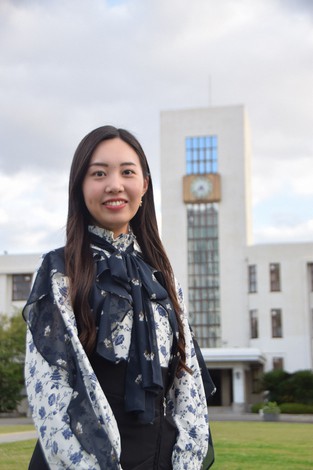Fonte: Mainichi.jp A student-founded education startup has been launched to meet increased demand for English skills ahead of the 2025 World Expo in
Fonte: Mainichi.jp
A student-founded education startup has been launched to meet increased demand for English skills ahead of the 2025 World Expo in this west Japan city, while furthering the U.N.’s Sustainable Development Goals (SDGs) by hiring women in developing countries.
“Education is society’s foundation. I want to broadly contribute to society and provide women in developing countries, especially mothers, with jobs,” said 21-year-old economics major Kaho Fujikawa. The third-year Osaka City University (Osaka Metropolitan University) student was introduced in the university’s alumni magazine this October as the founder of the institution’s first official student-led venture.
Fujikawa named the business Logiglish, combining “logic” and “English” to emphasize its aim of providing efficient and practical English education. With the university’s campus as its base, the business was officially registered this February. While seeing the 2025 expo as an opportunity, the main purpose was to help achieve the goals of the U.N.’s 2030 Agenda, including gender equality.
Born in Kobe, Fujikawa attended institutions associated with the national university there from kindergarten through high school. She grew up watching U.S. TV shows and participated in English-language debates in high school.
She entered university in April 2021, just as classes were mainly being held online due to the coronavirus pandemic. In the summer of her second year, she learned of a program linking industry, government and academia to foster young entrepreneurs in growing beyond their local communities. Students from major universities in different parts of Japan had joined, receiving guidance from large companies like Kyocera and Panasonic.
While communicating with representatives of some of the participating companies, Fujikawa explored business ideas to help provide income for women in developing countries which have a large gender-based wage gap. On family trips to developing countries in Asia and elsewhere, she had seen how cultural and economic differences sway the course of people’s lives, particularly women, who were relegated to housework and nearly detached from society after getting married.
At one point, she learned that one of her economics instructors had been involved in the development and sales of an English proficiency test using speech recognition technology. This led to a fast-growing network of contacts including one or more language professors and overseas software developers.
Logiglish aims to provide completely tailor-made educational consulting. “After meeting some linguistics experts, I thought it was a chance to start a business based on providing customized English learning support in areas needed by each individual,” Fujikawa said.
The company is hiring women in developing countries where English is an official language, such as Ghana and the Philippines, as conversation partners.
“I want the business to get into gear while sensing the importance of being the university’s first official student venture,” said Fujikawa.

